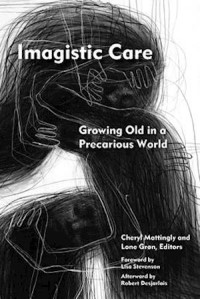Virtues and Vexations: Intimate Others Caring for Elders in Eastern Uganda
 Professor Susan Reynolds Whyte has contributed the chapter 'Virtues and Vexations: Intimate Others Caring for Elders in Eastern Uganda' to the book Imagistic Care: Growing Old in a Precarious World, edited by Cheryl Mattingly and Lone Grøn.
Professor Susan Reynolds Whyte has contributed the chapter 'Virtues and Vexations: Intimate Others Caring for Elders in Eastern Uganda' to the book Imagistic Care: Growing Old in a Precarious World, edited by Cheryl Mattingly and Lone Grøn.
The new release explores how images function in our concepts, our writing, our fieldwork, and our lives. By cutting between ethnography, phenomenology and art, the volume offers a powerful contribution to understandings of growing old.
Based on her ethnographic fieldwork in Butaleja District in eastern Uganda, Susan R. Whyte argues that care has three characteristics. Care is composite; it has multiple elements and involves many people. Care is a heavily moral matter, where virtue is mirrored in vexation with others who are criticized for not caring enough. Care is contingent in that it depends on histories and events in the lives of care givers and receivers. Across these features of care run overall themes of intimacy and its gradations.
Susan examines intimacy and care using a distinction made by Albert Schutz: the difference between my immediate shared experience of another person and the image of that person I carry when we are no longer together. Susan describes how elements of uncertainty can infuse our dealings with the images, expectations, and hopes we hold of intimate others.
Despite conflicts between caregivers, care is virtuous, not only for the caring individual, but for the entire family of a frail elder. This is publicly demonstrated in the staging of a worthy funeral.
Read more about the book on the publisher, Fordham University Press' website: Imagistic Care (fordhampress.com)
